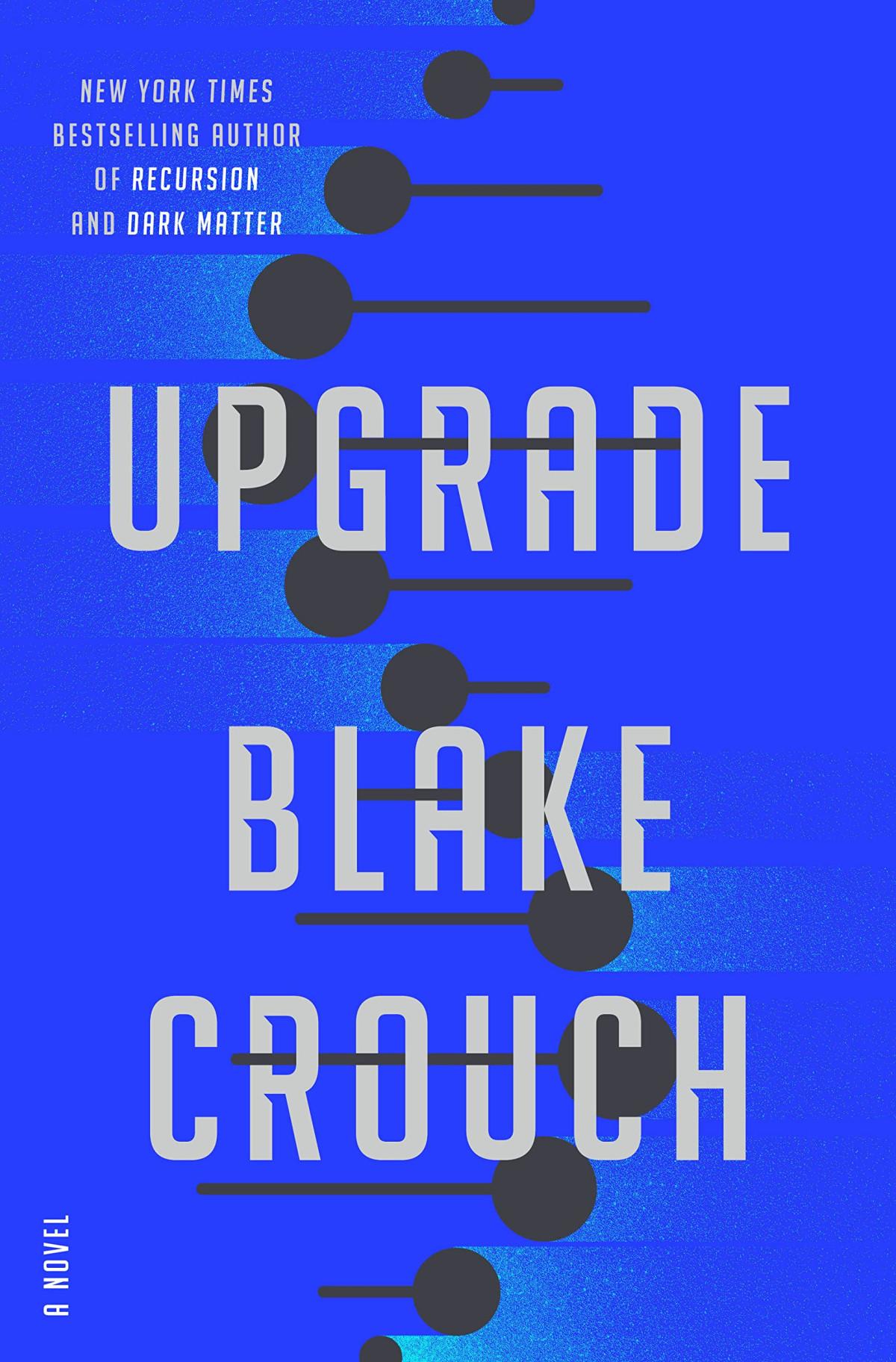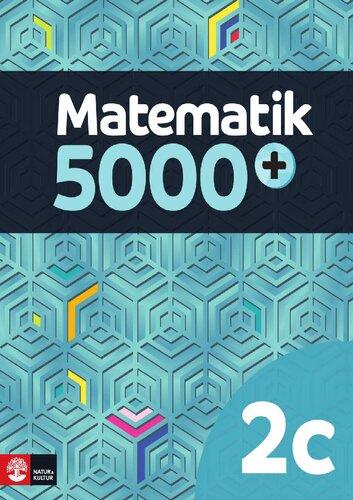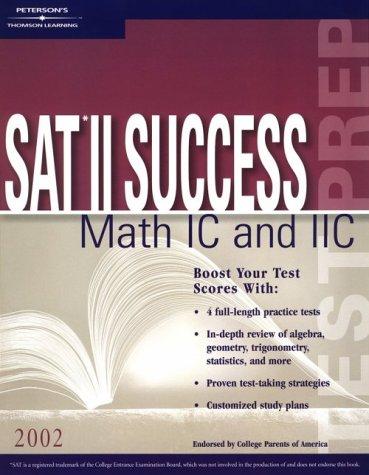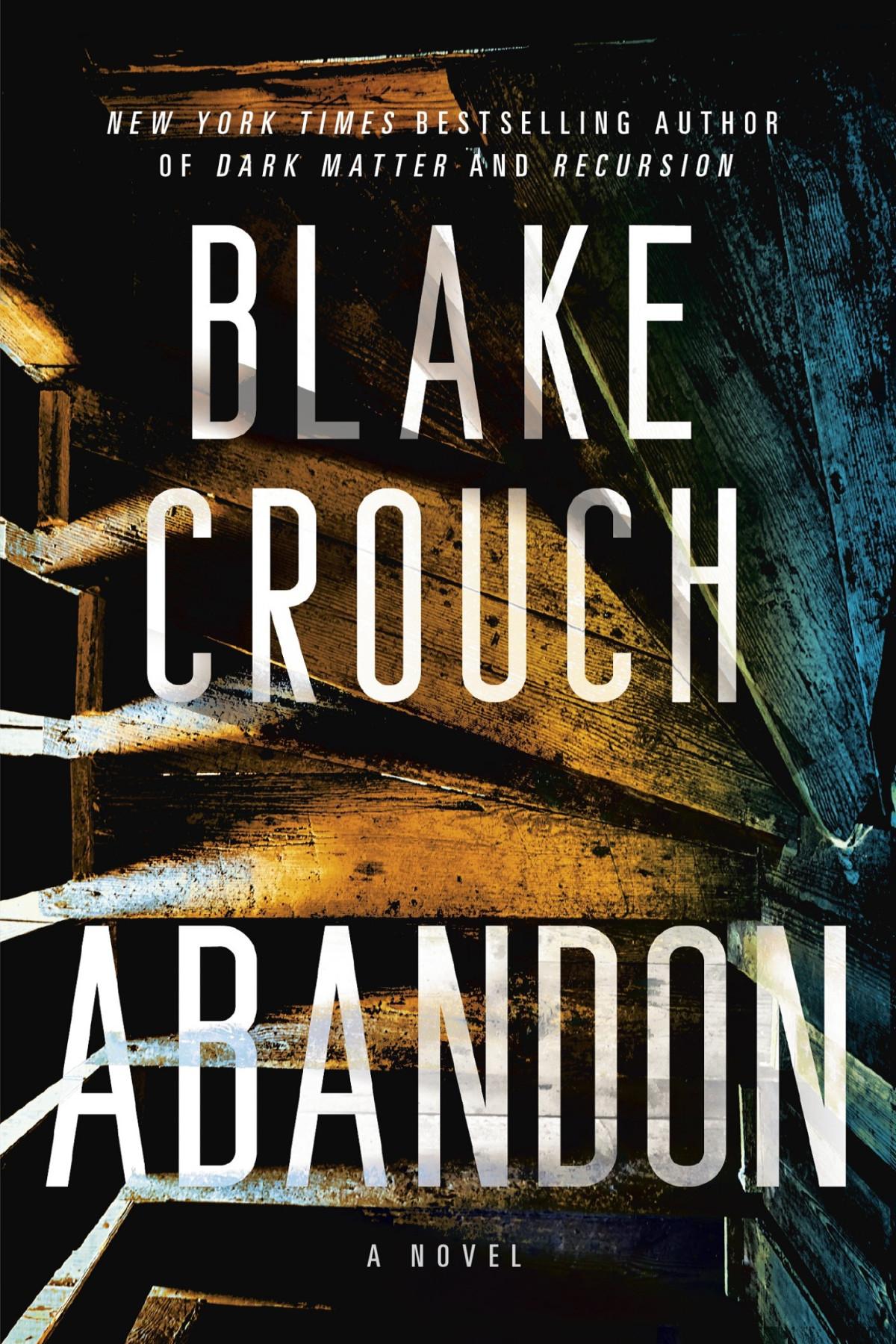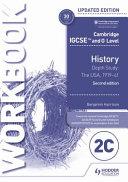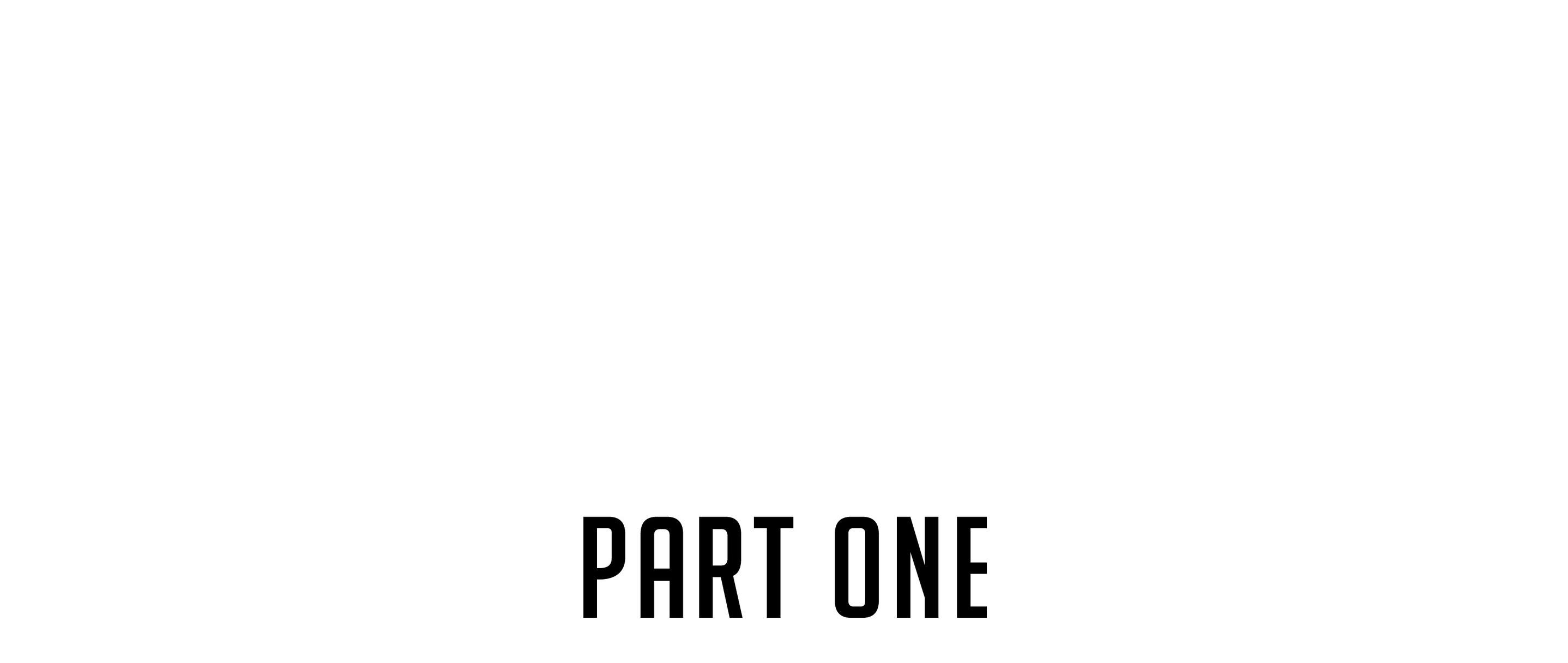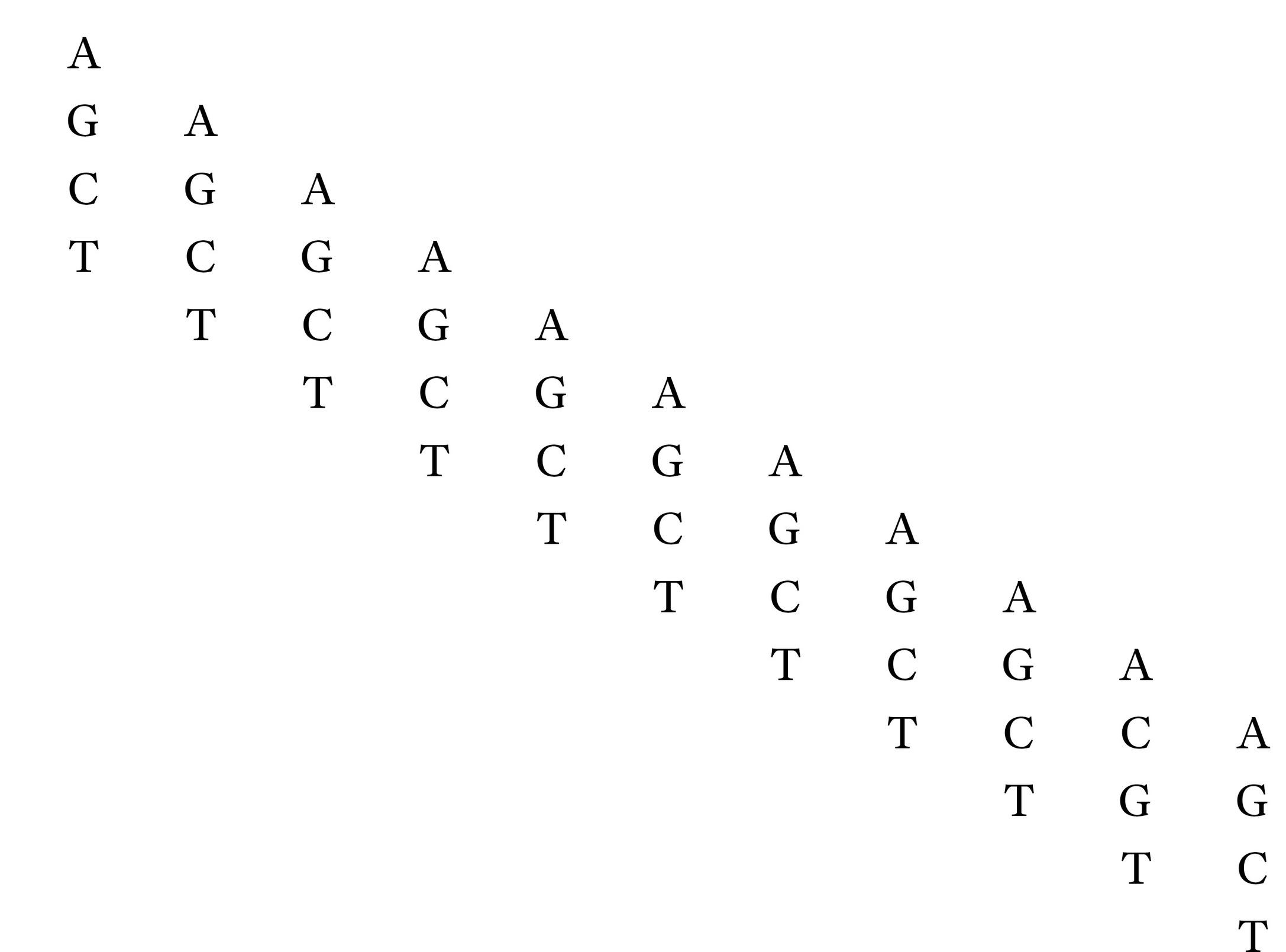Epilogue
Dedication Acknowledgments
By Blake Crouch
About the Author
You can stop splitting the atom; you can stop visiting the Moon; you can stop using aerosols; you may even decide not to kill entire populations by the use of a few bombs. But you cannot recall a new form of life.
Erwin Chargaff
WE FOUND HENRIK SOREN at a wine bar in the international terminal, thirty minutes from boarding a hyperjet to Tokyo.
Before tonight, I had only seen him in INTERPOL photographs and CCTV footage. In the flesh, he was less impressive five and a half feet in his artificially distressed Saint Laurent sneakers with a designer hoodie hiding most of his face. He was sitting at the end of the bar with a book and a bottle of Krug.
I commandeered the stool beside him and set my badge between us. It bore the insignia of a bald eagle whose wings enveloped the double helix of a DNA molecule. For a long moment, nothing happened. I wasn’t even sure he’d seen it gleaming under the hanging globe lights, but then he turned his head and looked at me.
I flashed a smile.
He closed his book. If he was nervous, he didn’t show it. Just stared at me through Scandinavian blue eyes.
“Hi, Henrik,” I said. “I’m Agent Ramsay. I work for the GPA.”
“What am I supposed to have done?”
“Yes.” I tried to keep my tone neutral. It wasn’t the first time a suspect had made that connection. He said nothing else. I could feel Nadine looking at me.
I stared out the window. We were on the outskirts of the city center, doing 120 mph. The dual electric motors were almost silent. Through the wraparound NightShade glass, I saw one of the GPA’s new billboards shoot past part of the latest public awareness campaign.
In black letters against a white background:
GENE EDITING IS A FEDERAL CRIME
#GPA
Downtown Denver loomed in the distance.
The megatall Half-Mile Tower soared into the sky—an arrow of light.
It was one �.�. here, which meant it was three back in D.C.
I thought of my family, sleeping peacefully in our home in Arlington.
My wife, Beth.
Our teenage daughter, Ava.
If all went smoothly tonight, I’d be back in time for dinner tomorrow evening. We were planning a weekend trip to the Shenandoah Valley to see the fall colors from the Skyline Drive.
We passed another billboard:
ONE MISTAKE CAUSED THE GREAT STARVATION
#GPA #NEVERFORGET
I’d seen that one before, and the pain hit an ache in the back of my throat. The guilt of what we’d done never failed to hit its mark.
I didn’t deny it or try to push it away.
Just let it be until it passed.
It was an old hardback copy of The Stranger. I thumbed carefully through the pages.
“It’s clean,” Soren said.
I was looking for rigidity in the pages, signs they’d been wet at some point, infinitesimal circular stains. Vast amounts of DNA, or plasmids, could be hidden on the pages of a normal book dropped in microliter increments and left to dry on the pages, only to be rehydrated and used elsewhere. Even a short novel like The Stranger could hold a near-infinite amount of genetic information, with each page hiding the genome sequence for a different mammal, a terrifying disease, or a synthetic species, any of which could be activated in a well-equipped dark gene lab.
“We’re going to put every page under a black-light lamp,” I said.
“Great.”
“They’re bringing your luggage here too. You understand, we’re going to tear it apart.”
“Go nuts.”
“Because you already made the delivery?”
Soren said nothing.
“What was it?” I asked. “Modified embryos?”
He looked at me with thinly veiled disgust. “Do you have any idea how many flights I’ve missed because of nights like this? Some G-man showing up at my gate, hauling me in for questioning? It’s happened with the European Genomic Safety Authority. In France. Brazil. Now I’ve got you assholes wrecking my travel. In spite of all this harassment, I’ve never been charged with a single crime.”
“That’s not quite true,” I said. “From what I hear, the Chinese government would very much like a word with you.”
Soren grew very still.
The door behind me opened. I smelled the acrid, burned aroma of yesterday’s coffee. Nadine swept in, kicking the door shut behind her. She sat down next to me and placed two coffees on the table. Soren reached for one of them, but she smacked his hand.
“Coffee is for good boys.”
germline modification the making of a new organism came with a mandatory thirty-year prison sentence.
“I think I’d like to call my lawyer now,” Soren said. “I still have that right in America, don’t I?”
We were expecting this. Frankly, I was surprised it had taken this long.
“You can absolutely call your lawyer,” I said. “But first you should know what will happen if you go down this path.”
Nadine said, “We’re prepared to turn you over to China’s Gene Bureau.”
“America doesn’t have an extradition treaty with China,” Soren said.
Nadine leaned forward, her elbows on the table, the black coffee steaming into her face.
“For you,” she said, “we’re going to make an exception. The papers are being drawn up as we speak.”
“They don’t have anything on me.”
“I don’t think evidence and due process mean quite the same thing over there,” she said.
“You know I have dual Norwegian and American citizenship.”
“I don’t care,” I said. I looked at Nadine. “Do you care?”
She pretended to think about it. “No. I don’t think I do.”
Actually, I did care. We would never extradite an American citizen to China, but bluffing criminals is part of the gig.
Soren slouched back in his chair. “Can we have a hypothetical conversation?”
“We love hypothetical conversations,” I said.
“What if I were to write down an address on this notepad?”
“An address for what?”
“For a place where a hypothetical delivery might have been made earlier today.”
“What was delivered? Hypothetically.”
“Mining bacteria.”
Nadine and I exchanged a glance.
I asked, “You made the delivery to the lab itself? Not a random drop location?”
“I didn’t make any delivery,” Soren said. “This is all hypothetical.”
“Of course.”
“But if I had, and if I were to share that address with you, what would happen?”
“Depends on what we hypothetically find at this address.”
“If, hypothetically, you found this gene lab you’ve been hearing about, what would happen to me?”
Nadine said, “You’d be on the next flight to Tokyo.”
“And the China Gene Bureau?”
“As you pointed out,” I said, “we don’t have an extradition treaty with China.”
Soren pulled the pen and pad to his side of the table. We followed the stealth SWAT vehicle in blackout mode through deserted streets. The address Soren had scribbled down was on the edge of Denver’s gentrified Five Points neighborhood, where at this hour of the night the only things open were a few weed bars.
I rolled down the window.
The October air streaming into my face was more revitalizing than the coffee we’d downed back at the station.
It was late fall in the Rockies.
The air smelled of dead leaves and overripe fruit.
A harvest moon perched above the serrated skyline of the Front Range yellow and huge.
There should’ve been snow on the highest peaks by now, but it was all dry, moonlit rock above the timberline.
And I was struck again with the awareness that I was alive in strange times. There was a palpable sense of things in decline.
Africa alone had four billion people, most of whom were food insecure and worse. Even here in America, we were still crippled by rolling food shortages, supply-chain disruptions, and labor scarcity. With the cost of meat
I wasn’t one of them. I’m a scientist. Or at least I once dreamed of being one.
“Pull over,” I said.
Nadine whipped the Edison to the curb, its auto-system chiming and grumbling.
I threw the door up, leaned out, and spewed my guts onto the street.
Hart came over the radio again. “Everything okay back there? We lost you. ”
“All good,” I heard Nadine say. “Be right there.”
I wiped my mouth, spit a few times, and pulled the door back down.
Nadine didn’t say anything. She didn’t have to. My vomiting up my nerves was the closest thing we had to a pre-raid ritual.
It meant we could go to work now.
Nadine toggled the accelerator.
The back of the SWAT vehicle raced toward us.
As much as I hated going on the raids, I always reminded myself that the fear was a necessary part of my penance.
Most of the outlaw scientists we targeted were criminals, plain and simple. With the black-market demand for synbio products growing exponentially with each passing year, there was plenty of cash to be made on designer ultra-pets, spidersilk clothes, exotic GMO foods, even an entirely new life-form invented in a lab in Vancouver, B.C., that resembled a tiny, pink gorilla and that had become a kind of status symbol for the Russian oligarchs.
Black-market services and products had been enhanced as well.
Hacked cannabis and heroin.
Sex dolls wrapped in synthetic human muscle and skin.
A dark gene lab in Mexico City busted by the federales had been constructing “revenge wasps” for the cartels. These yellow jackets could target any person based on their genetic fingerprint. They also carried a primitive Scythe system capable of modifying entire gene networks, leading to brain damage, insanity, and excruciating death.
For others, genetic fuckery was just to show they could do it, like the four biology undergrads at Brown who had simply wanted to see if they could
make a dire wolf.
But for a select few, the endeavor was deeply personal like the socially isolated but brilliant sixteen-year-old who attempted to engineer an antibiotic-resistant, flesh-eating bacteria to infect a bully at school.
Or the rogue geneticist we’d caught attempting to clone an improved version of his dead wife using black-market, enucleated human zygotes.
The desperate parents with no health insurance who tried to somatically edit muscular dystrophy out of their son’s DNA. They actually cured him, but the off-target mutations they inadvertently created changed his medial frontal lobe network. He became psychotic, killing them before taking his own life.
Then there were the labs of my nightmares, where terrorist organizations engineered pathogens and weaponized life-forms of destruction, like the group in Paris that was on the brink of releasing a synthesized ultra-smallpox relative when the European Genomic Safety Authority dropped a thermobaric weapon on their warehouse.
Busting up those operations never troubled my conscience.
The ones that hurt were the raids on real scientists. Those who’d been doing groundbreaking work, for all humankind, when governments panicked and made it practically impossible to be a genetic engineer.
People like Anthony Romero.
I still thought of him sometimes. He’d built his lab on a ranch in the Bighorn National Forest outside of Sheridan, Wyoming.
Before the Gene Protection Act had effectively ended all private and university-based genetic research, Dr. Romero had been at the forefront of gene therapies for cancer treatment. He’d been rumored to be on the Nobel Prize shortlist for medicine or physiology. But his New York Times editorial decrying the Gene Protection Act for its extraordinary overreach had ended any chance of him being added to the list of government-approved geneticists.
We’d arrested Dr. Romero peacefully at 2:30 �.�. as a light snow fell on the stand of Ponderosa pines outside his cabin. I felt physically ill as I handcuffed him and put him into the back seat of our car. I wasn’t just arresting a hero—a man whose life and career I aspired to and envied. I was
Through the glass, I could see the four SWAT officers already out of the vehicle, one of them prepping the thermal-imaging drone. It would fly a perimeter around the target location, attempting to pinpoint heat signatures so we’d have some idea of how many life-forms were inside.
SWAT would go in first, taking the point position, with Nadine and me bringing up the rear. Once the lab was reasonably secure, they’d maintain a perimeter so we could go to work taking an inventory of the equipment and ascertaining what exactly the rogue scientists were up to.
I fastened the magnetic straps on my inductive body armor and took my weapon out of the go-bag. It was a G47, chambered to .45 caliber. I had modded a grasp to hold a Streamlight onto the Glock’s composite after too many raids on warehouses with sketchy power.
Meanwhile, Nadine was locking the shell drum magazine into her weapon of choice an Atchisson assault shotgun. I liked to tease her for bringing such a beast along when we usually had SWAT support, but her argument was tough to get around. She’d found herself in a bad spot in Spokane, Washington, before we started working together. She had unloaded an entire magazine of .40-cal rounds into a scientist who had done a little self-editing gene therapy around a host of genes in the SKI, PGC-1α, and IGF-1 pathways. As a result, the suspect’s skeletal muscles had undergone a massive hypertrophy cycle, together with his mitochondria, making them huge and superdense. The man, whom she’d described as looking like the comic-book character, Kingpin, had nearly beaten her to death before finally bleeding out.
But as Nadine was fond of pointing out, there was no animal that walked the Earth that a twenty-round drum of twelve-gauge slugs on full-auto couldn’t put instantly on the ground.
In my earpiece, I heard Officer Hart say, “We’ re not detecting any heat signatures on the premises.” “Copy that.”
No one home, which was just how we liked it. Now we would reconnoiter the empty lab, wait for the scientists to show up. It was much easier to take them down on the street than inside a room filled with explosive chemicals and biohazards.
I checked the time: 2:35 �.�.
We had a good three hours before first light.
I looked over at Nadine. “Shall we?”
It was cold enough outside to cloud my breath.
We grabbed our night-camo hazmat suits out of the trunk and helped zip each other into them. They had a self-contained breathing apparatus and a specially made visor that provided a wider field of vision for combat situations.
Finally, we opened the air tanks and fell in behind the SWAT’s tactical column.
“Night vision or flashlights?” Hart asked.
“Flashlights,” I said. There was too much ambient light here, and that harvest moon was on the rise. It would soon be shining through the Victorian’s windows.
The rear fence was too tall to see over, but we got through the gate leading into the backyard without having to break anything.
The lawn hadn’t seen water or other care in ages.
Weeds grew waist-high.
I looked up at the windows of the old Victorian. A few were missing the glass entirely, and every one of them was dark.
Up onto the sagging deck that creaked under our boots.
Officer Hart knelt at the back door; had the lock picked in ten seconds.
We followed them inside into total darkness.
The lights of their assault rifles swept over an under-construction kitchen.
We moved on into a dining room, the walls stripped to the studs, electrical wiring everywhere, tools scattered across the floor.
“Looks like a remodel,” I whispered over the open channel.
“Wait here,” Officer Hart said.
Nadine and I stood on raw subfloor in what would have been the living room.
Even through my suit, I could smell the sawdust and polyurethane in the air.
Moonlight streamed in through the windows that fronted the street.
My eyes were slowly adjusting.
I could hear the boot-falls of the SWAT team moving systematically above us, room to room.
“Anything?” I asked.
“Negative,” Hart said. “More of the same up here. It’ s all stripped to the studs.”
Nadine looked at me. “You think Soren played us?”
“Why would he? He’s still in custody. Knows he won’t be let out until we give the high sign.”
I noticed a door under the stairs. It was secured with a Master Lock that opened with a four-digit combination. I gave it a tug. No dice.
“Move,” Nadine said.
When I looked back, she had a brick in her hand.
I stepped out of the way as she smashed it down on the lock.
The metal sheared off the broken lock hit the floor.
“That was us,” I said to the team. “We just broke a lock off a door.”
“We’ re heading back your way, ” Hart said. “It’ s a ghost town up here.”
I pushed the door open.
It made a grating creak on its rusty hinges.
I pointed my Glock into the pitch black, the light illuminating a set of old stairs that descended to a basement.
My heart kicked.
“Want to wait for SWAT?” I asked.
“No heat signatures. No one’s here,” Nadine said.
The first step groaned under my weight.
It grew colder as I descended.
Even my suit’s air filter couldn’t remove the stench of mildew and wet stone.
Another SWAT officer said over the channel: “Main level is clear.”
As I reached the bottom of the stairs and stepped onto a dirt floor, I had the sinking feeling that Nadine was right. Maybe Soren had played us. As to why, I couldn’t imagine.
As the sides of the cube fell away, my light shone through a sphere of what looked like ice. It was roughly the size of a bowling ball, and based on the quantity of vapor peeling off the surface, I suspected that it was supercold, or perhaps made of something other than H2O.
“There’s another one over here,” Nadine said.
I turned, saw that she was shining her light on an identical sphere of ice near the stairs.
“What the hell is this?” she asked.
I said, “I’m not really loving the vibe down—”
A buzzing sound interrupted me it was coming from the dry sink.
I moved toward it. Saw the source of the vibration. Felt an explosion of panic.
Beside the sphere of ice, there was a phone with a touchscreen lighting up as a call came through. Two wires ran from the phone, through a hole in the table, and underneath the ice.
The ice spheres began to glow from a blue light embedded at their centers.
“Get out!” I screamed.
The SWAT team was already halfway up the stairs.
Nadine followed frantically behind them.
I saw everyone disappear onto the main floor, and I was several seconds from the bottom step when the basement went white.
I felt an immense pressure on my chest.
Then I was lying on my back on the floor, staring up at the exposed insulation under the main level.
The visor of my hood was cracked and scratched in numerous places, and there were tiny, clear fragments speared through the plastic. I didn’t understand what they were until one of the slivers of shrapnel dripped a freezing drop of water into my left eye.
I managed to raise my pistol and shine the light on my suit. It had been shredded and punctured in more places than I could count.
Writhing panic.
Pain flooding in.
WHEN I TOOK A breath, a crushing agony constricted my chest.
I heard myself moan.
Opened my eyes.
I was lying in a hospital bed.
On a stand beside me, a vital-signs monitor beeped at regular intervals and an IV bag fed something into my vein through an intravenous needle taped to my heavily bandaged left arm. My other arm and my legs had been wrapped in gauze. More disturbing was the opaque plastic partition completely enclosing me and the bed. Beyond, I could only see silhouettes and vague shapes. The voices I heard were distant, muddled.
I tried to retrieve my last waking memory, and whether it was because of the drugs or my injuries, it took some effort to find it.
I’d been lying on the dirt floor in the basement of a Victorian we’d raided in Denver. There’d been an explosion. I had tried to get up, but the pain in my chest had been paralyzing.
And so I’d lain there in the dark, wondering where the rest of the team had gone.
Wondering if I was dying.
“Do you remember what happened last night?”
“I was on a raid. Something blew up.”
“An improvised explosive device detonated in that basement. You may have been exposed to something.”
A rush of paralyzing fear enveloped me.
“Like what?” I asked.
“A pathogen or a toxin.”
“Was I or not?”
“We don’t know yet. We’ re running tests. I will say it’ s not looking like you were poisoned. Your organ function is good.”
“What about the others who were with me? My partner, Nadine. The SWAT team.”
“They’ re in quarantine here as well, just to be safe. But they were out of the basement when the device went off. Their suits weren ’t compromised.”
I shifted uncomfortably in the bed.
The pain was intensifying, the purple button calling to me.
“What are my injuries?” I asked.
“Two broken ribs. Three cracked ribs. Your left lung was collapsed, but that’ s been fixed. And your arms and legs are covered in lacerations from the ice fragments.”
“Was it that bad of an explosion?”
“You were in a confined space, so the differential between your air-filled organs and the pressure wave caused some damage. Fortunately, nothing lifethreatening. Nothing you won ’t recover from.”
I figured the pain had reached the threshold of becoming at least as distracting as the morphine would be.
I pressed the purple button several times.
The relief was instantaneous.
Instantly I felt weightless and warm.
“I see you just activated the morphine pump. Try to get some sleep, Logan. I’ll check in on you in a couple of hours.”
I woke again.
Something was different this time.
Something was wrong.
There was still that radiant pain in my chest, but now my body ached as well, and I felt unimaginably hot. The sheets were soaked with sweat. It was running down into my eyes, and I wasn’t breathing so much as panting.
The vital signs monitor beeped too fast.
Someone stood at my bedside, injecting the contents of a syringe into my IV line.
“What’s happening?” I asked.
My voice sounded dreamy. My words slurred.
The doctor or nurse peered down at me through the face shield of a hazmat suit. I tried to read the gravity of the situation in their eyes, but it eluded me.
Their voice came through a speaker in the face shield. It sounded like the doctor I had spoken to previously, although I couldn’t recall her name.
“You’ve spiked a very high fever, Logan. We’re trying to get your temperature down.”
“How high?”
“Too high.”
I said something that, even to me, sounded delirious.
A door in the plastic unzipped and another hazmat-suited medical worker stepped into my bubble.
“I have the cold packs, Dr. Singh.”
“Thank you, Jessica.”
Dr. Singh set the syringe down and drew back the blankets that had been covering me. I had sweated completely through my bandages and hospital gown.
Dr. Singh carefully lifted my head off the pillow as Jessica wrapped a cold compress around my neck.
I tried to ask if I was dying, but the words rushed out in vibrant colors. I could actually see them leaving my mouth in a train of exploding fireworks.
I sweated and groaned through fever dreams beyond anything in my experience.
Fantastical.
Repetitive. Terrifying.
When I woke, my fever had broken.
Though my chest still ached, it wasn’t that blinding pain from earlier.
I was alone in my bubble, and Dr. Singh’s voice was coming through the speaker again.
“Hello, Logan. How are you feeling?”
“Better.”
“You scared us. You hit 106.1.”
“I wasn’t trying to set a record or anything.”
“We don’t like seeing fevers go that high. At those levels, organ damage, seizures, even death becomes a possibility.”
“What caused it?” I asked.
“Still running tests, but there are no indications that this is bacterial or caused by an infection. So at this point, we ’ re thinking whatever’ s going on is probably viral.” Fuck.
Some wack job with a vendetta against the GPA had set a trap. They’d even recorded the moment of exposure.
Scarier than a synthetic virus taking a machete to my body was the other reason people engineered viruses they’re the perfect machines for carrying foreign genetic information into cells. In other words, they can be used to infect people with a change agent capable of rewriting their DNA.
For me, lying here in quarantine, the idea that this virus might have infected me with something like Scythe, a DNA modifier rewriting the code
that makes me me was exponentially more terrifying than the prospect of a simple virus.
“You have someone here who’d like to say hello.”
A new voice came over the speaker.
“Logan?”
I smiled so widely that I felt a corner of my lip split. “Beth?”
“I’ m right here in the next room. ”
It sounded like she was crying.
I started crying too.
It was the familiarity of her voice this woman who loved me in spite of everything and the reminder that I could’ve lost her in the flash of an IED.
“When did you get to Denver?” I asked.
“Yesterday. Ava and I took the loop out here as soon as we heard what happened.”
“Ava’s here?”
“Hey, Dad.”
“Oh my god, hey, kiddo, it’s so good to hear your voice.”
“Yours too.”
“What have they told you?” I asked.
“Not a whole lot. Edwin said that a lab you had gone into exploded. And the doctors told us you might have been exposed to something in the blast and that’ s why you ’ re in quarantine.”
“Sorry about our weekend. We should all be in Shenandoah right now.”
“We’ll go as soon as you ’ re out of here,” Ava said.
“You’re staying up on school, honey?” “I am. ”
“I don’t want you falling behind again. Me almost getting blown up is no excuse.”
“I think it’ s a great excuse. I brought my laptop. I’ ve been working in the waiting room. ”
“Okay,” Beth said, “they’ re telling us we have to let you rest now. ”
“You and Ava will be close?”
“We aren ’t going anywhere.”
adenine, guanine, cytosine, and thymine: the four chemical bases that comprise deoxyribonucleic acid.
DNA.
The air was filled with nucleobases. They blew sideways.
Formed swirling vortexes.
Ran down the walls of the plastic partition.
Endless, mysterious permutations of the blueprint of all life on Earth.
I could feel the letters splashing down on my face.
I inhaled them.
A torrent of Biocode that kept changing, mutating.
My head was on fire, and I thought if I could only decipher the code, I could understand what the virus was doing to me.
“Yes. And we just finished sequencing a sample. Those ice spheres held a virus in supercold suspension.”
I was suddenly wide awake.
“Pretty ingenious actually,” he went on. “The shrapnel gets inside you through superficial cuts and melts without doing lasting physical damage.”
“Oh god.”
He put his gloved hand on my shoulder. “Before you freak out, it’s none of the Filoviridae family viruses you’ve probably been having nightmares about. It’s not Ebola or Marburg. We know it’s not smallpox. It actually has characteristics of the Orthomyxoviridae family.” “Influenza?”
“Yes.”
“Synthetic?”
“That’s the assumption.”
And then I asked the question I almost didn’t want an answer to. “Did it encode a Scythe complex?”
He nodded.
Ah, fuck. I’d been infected, not only with a virus of unknown origin, but with a payload encoding the most powerful genome-modifying system ever created. Almost certainly it had been designed, not to make me sick, but to infect some or all of the cells in my body, potentially editing and rewriting portions of my DNA.
“Do you know which genes and pathways were targeted?” I asked.
“Not yet, but we’re running a test and a full analysis of your white blood cell sample.”
I tried to brace myself against the wave of fear, but I couldn’t hold it back. It simply leveled me. This was the worst possible news, though not exactly a surprise. I’d lain on the dirt floor in the basement as the ice melted inside me. But it made the reality of my situation solid in a way it hadn’t been before.
Edwin reached over the railing on my bed and patted my shoulder. “I want you to hear this from me,” he said. “We’re going to find who did this and take a serious shit in their coffee. You just focus on getting better.”
“I’ll try, sir.”
He was trying to comfort me, but catching the culprit wouldn’t really help if these DNA changes turned out to be lethal. A Scythe system could wreak all manner of havoc on my genome.
If a person’s genetic code were written into a standard-size book, that book would be a twenty-story tome consisting of three billion permutations of the letters A, C, G, and T, which represent the four nucleobases adenine, cytosine, guanine, and thymine. The specific arrangement of these four nucleobases creates the code for all biological life on the planet. This code is the genotype, and the way it physically expresses in a life-form (eye color, for instance), combined with its interactions with the environment, is called the phenotype. But understanding the correlation between genotype and phenotype—which DNA code programs which traits—still largely eludes us.
Edwin rose from the chair. Then he walked to the door, zipped it open, and stepped through to the other side.
As I watched him zip me back into my universe of sealed plastic, I felt truly alone.
It reminded me of my time in prison and the crushing sense that others could come and go.
But I was here.
Trapped with my changing genome.
They started me on a course of interferon gamma and a set of new antivirals.
I spiked one more fever the following night and then began a period of rapid improvement. My energy roared back. My appetite returned. I started sleeping through the night.
Within three days, my bandages were gone, my ice-lacerations scabbing over.
My ribs still hurt, but I was desperate to get out of bed and walk around even if it was only up and down the ICU corridor.
I longed for a real bathroom instead of my humiliating bedpan.
But they wouldn’t let me leave my bubble.
Because they knew almost nothing about the hacked strain of influenza I’d been infected with, Dr. Singh would take no chances. Though I was symptom free, I was still shedding the virus, which meant I could be contagious to others.
And so I passed my days streaming movies on my tablet or trying to amass enough concentration to read. But mostly I obsessed over what Scythe might be doing to me.
The hospital had resisted letting my wife and daughter suit up and visit me inside the bubble, but after a week in bed, I insisted that I be allowed to see them.
My fourteen-year-old strode through the plastic partition in full hazmat gear that swallowed her whole, a canvas bag slung over her shoulder.
I laughed when I saw her my first real laugh since waking up in the ICU five days ago. But with my cracked and broken ribs, the joy turned instantly to agony.
“Hey, Dad,” Ava said, her voice emitting through the built-in speaker. Then she leaned over the bed and gave me the greatest awkward hug I’d ever received, my face pressing into her plastic face shield. Even though it was through latex gloves and a Tyvek suit, the touch of someone I loved, and who loved me, brought me to tears again.
“You okay, Dad?”
“I’m fine.” I wiped my eyes.
She pulled the chair over and reached down into the bag she’d brought with her, lifting out a chessboard.
“Want to play?”
“God, yes. I’m so sick of staring at screens.”
I sat up, groaning as I tried to get the pillows comfortably arranged behind me. Ava opened the chessboard, placed it on the bed, and began setting up the pieces.
It moved me that Ava would suit up to spend time with me inside my bubble. If you weren’t used to them, a hazmat suit could be a claustrophobic experience. They were hot and bulky, and inevitably your face would begin to
